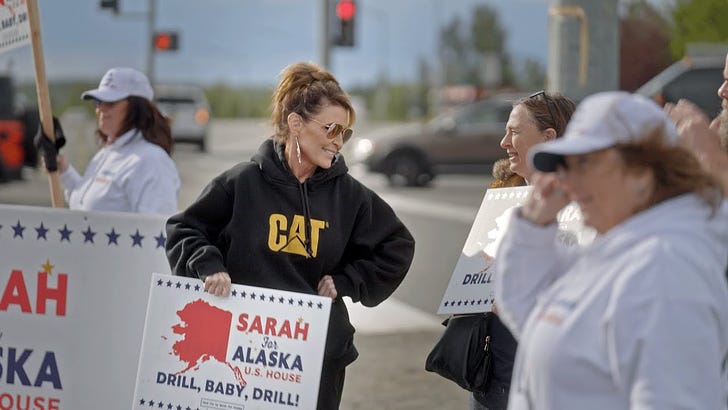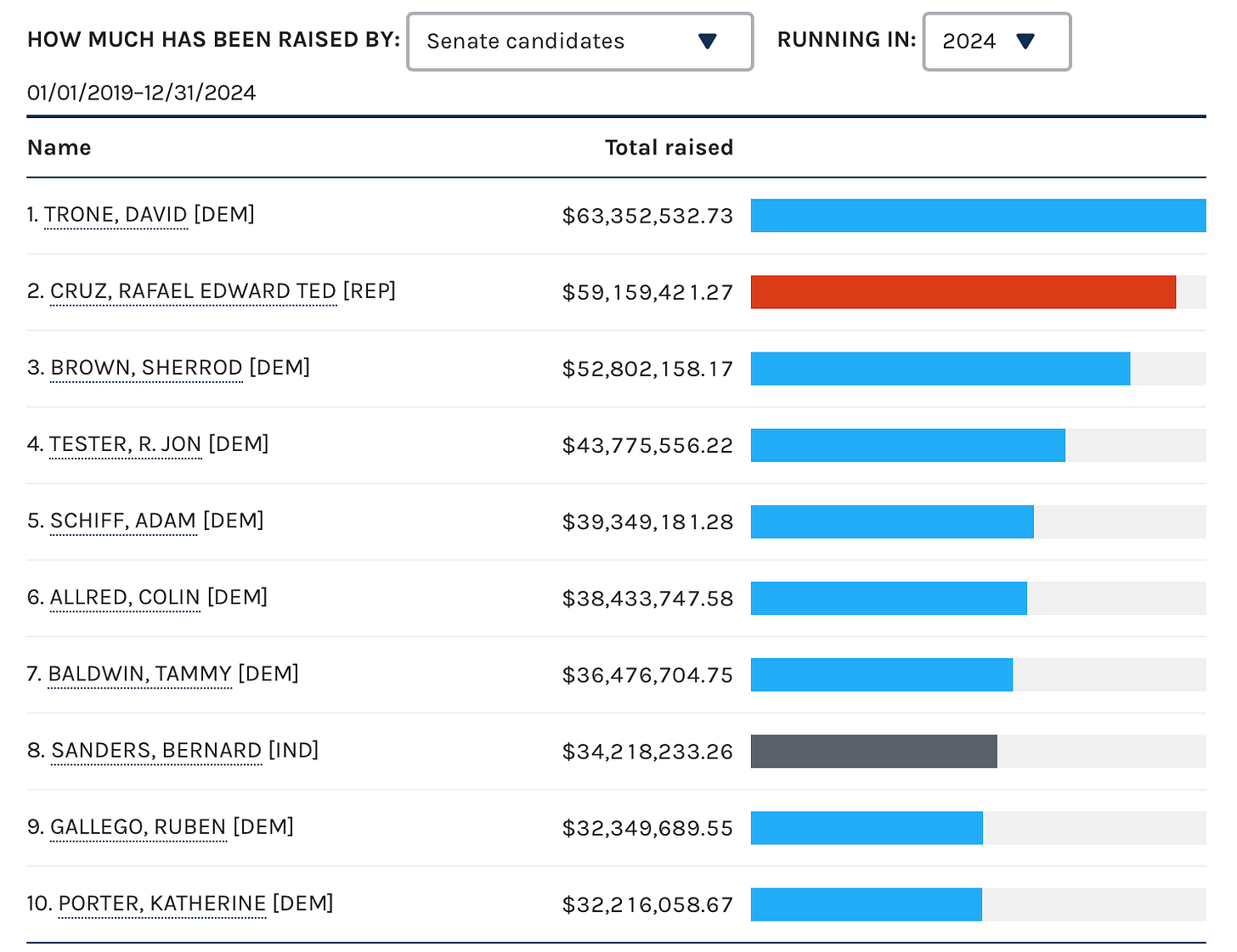Remember when Citizens United was the existential threat to democracy?
Political donations and democratic philanthropy
Dear Friends,
Where were you on January 21, 2010 when the U.S. Supreme Court opened the floodgates to unlimited political donations?
I was in New York City, where Open Society Foundations invited me to speak to their staff about the implications of this new thing called social media on their efforts to strengthen democracy and journalism. I was 29. I was nervous.
I spent weeks preparing my presentation. Halfway through, some folks walked out. Why were we talking about Facebook and Twitter, they wanted to know, when the Supreme Court was dismantling democracy and turning the United States into an oligarchy by removing limits on campaign donations?1
They assumed the Citizens United decision would help Republicans. Billionaires and corporations would bankroll candidates who promised to lower taxes, dismantle unions, and deregulate industry. Obama would lose re-election in 2012 because his opponent would have more money.
That’s not how it turned out, of course. Obama raised more money than Romney in 2012.2 In 2016, Hillary Clinton outraised Donald Trump by a landslide. In 2020, Biden vastly outraised Donald Trump. And so far in 2024, it’s not even close with Biden-Harris having raised nearly $1 billion and Trump not even $300 million.
Of the 20 House candidates who have raised the most money this year, only six are Republicans. And there’s only one Republican among the top ten Senate fundraisers:
I’m not arguing that political donations don’t affect election outcomes; there is a large body of research to the contrary. But it has had less of an impact than originally feared, and at the federal level has likely benefitted Democrats more than Republicans.3
Always an existential threat to democracy
“It will be the end of democracy,” responded Bernie Sanders when asked what would happen if Trump wins. Trump counters, “they’re the threat to democracy,” somehow labeling Harris both a radical communist and a fascist.
Both sides claim this is the most important election in history. Whoever wins will be the first “climate-disaster president.” The next president will regulate AI super-intelligence. We’re on the brink of nuclear World War III. And Bill Gates, preparing to launch a new Netflix docuseries, says we’re still not ready for the next pandemic.
Scary!
No wonder donors have already given over $9 billion to presidential and congressional candidates.
Political donations versus democratic philanthropy
By comparison, philanthropic funding to strengthen democracy is at around $3.4 billion per year, or less than 1% of the $500 billion that Americans gave to charity in 2022.
If we are truly concerned about the end of democracy, why aren’t more people doing something about it? My former Hewlett Foundation colleague Daniel Stid says we’re biased by short-term thinking and overly focused on federal elections to the detriment of local democratic renewal.4 We must stop treating the other side as an existential risk and invest in longer-term solutions that reinvigorate local and state democracy.
And there are real solutions. For the past few months, I’ve been consulting for Unite America, a nonpartisan group that supports three electoral reforms:
Open primaries to all voters and candidates. (Anyone can run and anyone can vote in a primary election.)
Require majority winners for elections (by using ranked-choice voting)
End partisan gerrymandering (with independent redistricting commissions)
These reforms are on the ballot in six states this year. And from now until Tuesday, you can view an entertaining documentary about the effects of the reforms in Alaska:
What will I find when I open the Time Capsule in 2044? Hopefully not World War III, AI overlords, climate disaster, or another global pandemic. I hope that anyone will be able to vote for any candidate in a primary election. Every state will use independent redistricting commissions to draw fair electoral maps. And we’ll use ranked-choice voting to list our preferred candidates. We’ll still complain about democracy as the least-worst system of governance, but maybe we’ll stop treating every election like it might be the last. We’ll still spend too much time obsessing over the personality quirks of presidential candidates, but maybe we’ll also walk over with our neighbors to the local city council meeting. We’ll see.
Have a lovely Sunday. And if you’re in Mexico, a happy Independence Day weekend,
David
The irony, of course, is that they worked for billionaire mega-donor George Soros. Eight years later, Soros published an op-ed about “the social media threat to society and security.”
And surprisingly embraced super PACs
At the state level, it seems Citizens United has benefitted Republican candidates for state legislatures, which is why The States Project tries to persuade liberal voters to redirect their campaign donations away from Kamala Harris and to candidates in nine key state races.
Daniel recently published a thoughtful reflection about the partisan pressure he faced while directing Hewlett Foundation’s Democracy Program.





Thanks for sharing the link to the documentary! I've been nerding out on governance and decision making lately, and this was super timely.